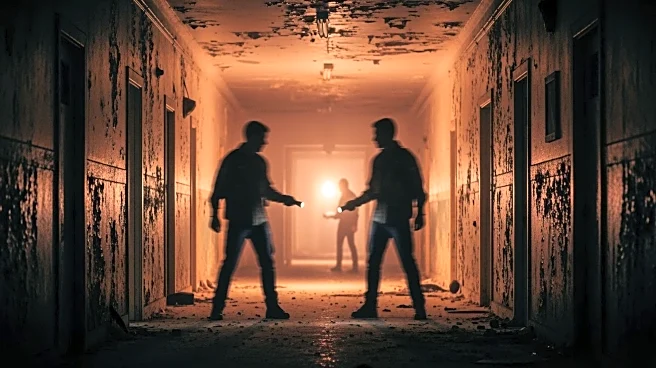What's Happening?
The Outlast Trials, a popular horror game developed by Red Barrels, is set to introduce a new PvP mode called Invasion in its upcoming update on October 21. Traditionally a PvE co-op game, The Outlast Trials will
now allow players to join as impostors, disguised as members of the opposing team. These impostors can sabotage missions, adding a layer of paranoia and tension to the gameplay. The update will also include an in-game shop, new missions, and the annual Halloween event, Geister. Twitch Drops will be available for the first time, enhancing player engagement.
Why It's Important?
The introduction of PvP mode in The Outlast Trials marks a significant shift in gameplay dynamics, potentially attracting a broader audience interested in competitive gaming. This update could increase player retention and engagement by offering new challenges and strategic elements. The addition of Twitch Drops may further boost the game's visibility and popularity on streaming platforms, creating opportunities for community growth and interaction. The update's timing with the Halloween event could capitalize on seasonal interest in horror games, driving sales and player activity.
What's Next?
Players can expect heightened excitement and strategic gameplay as they navigate the new Invasion mode. The update may prompt discussions among the gaming community regarding strategies and experiences, potentially influencing future game developments. Red Barrels might continue to expand on this PvP concept, introducing more complex mechanics and features in subsequent updates. The success of this mode could lead to similar innovations in other horror games, impacting the genre's evolution.
Beyond the Headlines
The introduction of impostors in a PvP setting raises interesting ethical questions about trust and deception in gaming. It challenges players to reconsider their strategies and interactions, potentially fostering a deeper understanding of human behavior in competitive environments. This development might also influence the design of future horror games, encouraging developers to explore psychological elements and player dynamics more thoroughly.









